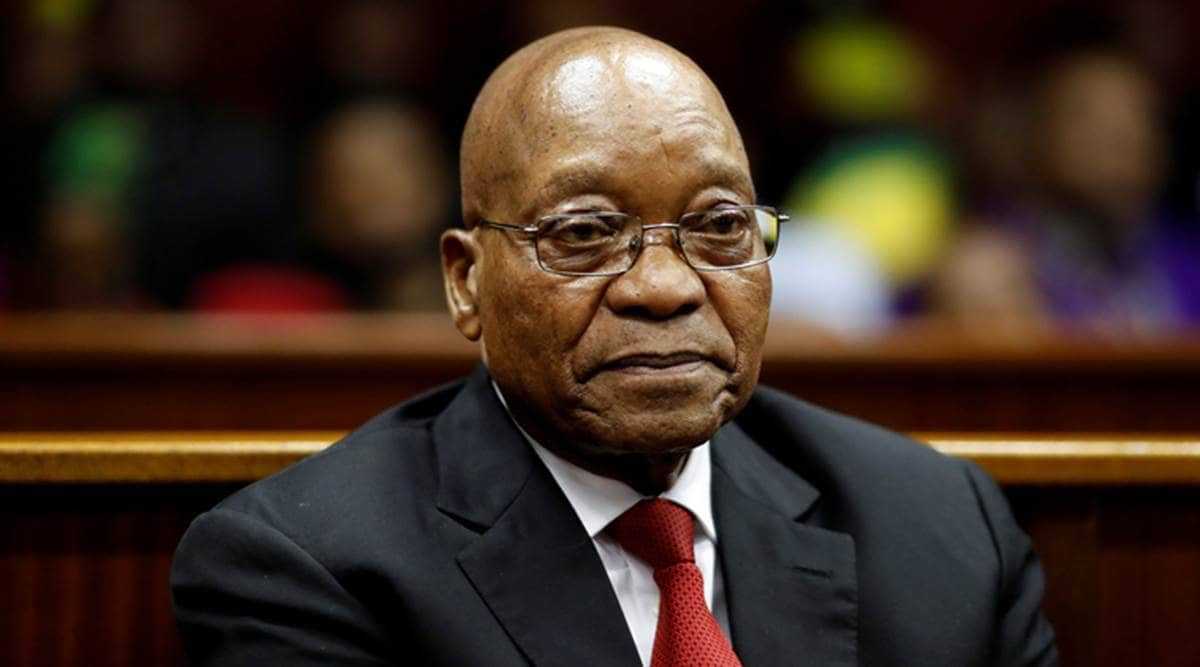Progressive South Africans fighting for justice are celebrating the Constitutional Court’s decision on Tuesday 29 June to sentence former president, Jacob Zuma to fifteen months in jail. The verdict for contempt of court was issued because Zuma failed to comply with a direct order by the same Constitutional Court to appear before the country’s Judicial Commission of Enquiry into State Capture that investigates ‘allegations of state capture, corruption, fraud and other allegations in the public sector’. The commission, led by Deputy Chief Justice (DCJ) Raymond Zondo, was established by Zuma himself during the last months of latter’s reign in 2018. Zuma was under great pressure to be seen to be doing something against corruption at the time.
Zuma has used a variation of excuses to avoid appearing before the commission, ranging from illness to a strange allegation that he knows DCJ Zondo personally, that they were ‘friends’ at one time and that therefore Zondo ‘cannot be objective’. The Deputy Chief Justice has continuously rejected the latter excuse, saying ‘we are not friends’. The matter escalated up to the point where summons for Zuma to appear as a witness were ignored and Zondo approached the Constitutional Court for a direct order to force Zuma to appear. Zuma’s failure to comply with that order has now led to the jail verdict by the Constitutional Court, the highest judicial body in the country.
The fifteen months jail term for contempt of court is not a sentence for corruption. Whether Zuma is guilty of so-called ‘State Capture’ corruption is still a conclusion to be awaited from the Zondo Commission. It is only after Zondo’s report that such criminal prosecution can be envisaged against Zuma and a host of his associates. There is, however, another corruption court case against Zuma in process. This case concerns the 1999 arms deal, a massive acquisition of fighter jets, patrol boats and military gear by the then Thabo Mbeki government. Jacob Zuma played little to no part in the arms deal himself, since he was not in the national government at the time, but he stands accused of receiving a bribe from one of the bidders, French Thales, in exchange for political lobbying efforts. Zuma pleaded not guilty to this charge in May this year.
Last Tuesday’s Constitutional Court sentence of fifteen months imprisonment for Zuma was disputed by a minority of two judges (of a total of eleven), who agreed that Zuma should indeed be jailed for contempt of court, but that the charge should have been prosecuted by the National Prosecutions Authority and not be handled directly by the Constitutional Court. The minority of judges was of the view that it was unconstitutional to grant a punitive verdict in civil contempt proceedings and therefore disagreed with the imprisonment order. They would have preferred a suspended jail sentence that would allow Zuma to avoid jail if he still testified before the Zondo Commission. The majority of judges, however, felt that that would be ‘akin to flogging a dead horse’.
Read the full verdict here.


